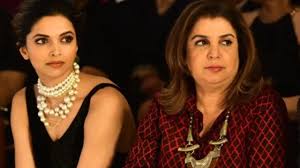The Bollywood film industry, notorious for its relentless schedules and all-consuming shoots, is at the center of a new work-culture debate. The spark: leading actress Deepika Padukone’s recent call for an 8-hour shift policy on film sets—a demand that has rippled across social media and production houses. Now, acclaimed director and choreographer Farah Khan has entered the conversation, offering a grounded perspective on finding balance between creative passion and worker well-being.
Deepika’s Stand: An Industry-Wide Wake-Up Call
Deepika Padukone, celebrated for her professionalism and dedication, made waves when she voiced her dissatisfaction with the industry’s grueling, often 16-hour shoot days. In an interview last week, the actress said, “We need to formalize shoot hours—8-hour days, just like any other industry.” Her argument centers on the need to protect not just actors, but the entire crew, many of whom endure long, unpredictable hours with little respite. “Sustainable art comes from sustainable working conditions,” she argued.
Many of her peers—actors, directors, technicians—echoed the sentiment, sharing their own stories of exhaustion, missed family events, and the toll on mental health. Hashtags like #8HourShoot trended on X, spotlighting the demand for a cultural reset and modern labor standards in Bollywood.
Farah Khan’s Reaction: The Voice of Experience
Farah Khan, whose career spans blockbusters such as "Main Hoon Na" and "Om Shanti Om," understands the demands of the set from both behind and in front of the camera. When asked for her take, Farah struck a note of realism, stating, “It’s a fantastic idea—but easier said than done.” She emphasized that while shorter shifts are ideal, filmmaking is inherently unpredictable. “There’s weather, light, location availability, actor schedules—sometimes you just can’t pack it all into 8 hours.”
However, Farah also acknowledged the industry’s need for reform. “We have to do better for our crews. Maybe the answer isn’t a rigid 8 hours, but a more humane approach—planning efficiently, capping overtime, and respecting days off.” She also pointed to the global trend in film and television, where unions and legal frameworks ensure worker rights, suggesting Bollywood needs to evolve in step.
Why Now? Changing Culture in Entertainment
Deepika’s demand comes amid a generational shift in workplace expectations worldwide. The pandemic normalized conversations on work-life balance across industries; entertainment is catching up. In the West, major studios regularly work with capped hours, regulated overtime, and mandatory breaks, thanks to unions like SAG-AFTRA and IATSE in Hollywood.
In India, lack of regulation means film crews, from spot boys to stunt coordinators, often bear the brunt of erratic schedules. Critics highlight the resulting burnout, health issues, and declining morale. Supporters of the 8-hour model say it could lead to higher quality output, more inclusive sets (especially for women and parents), and a more sustainable career for all.
Industry Responses: Momentum and Skepticism
Since Deepika’s remarks, several producers and directors—including Karan Johar—have signaled support for a new code of conduct. Some studios are piloting tighter shifts, rotating call sheets, and improved amenities to set an example. Others, however, worry about increased costs and scheduling delays in a market driven by tight budgets and high expectations.
Industry guilds, such as the Cine Artists Association, are considering formal talks on standardizing hours, though they caution reform must be gradual and considerate of practical realities.
The Road Ahead
Can Bollywood truly change its centuries-old culture of marathon shoots? “Change is hard, but conversation is the first step,” says Farah Khan. She urges both top stars and producers to lead by example—advocating for smart planning, clear contracts, and empathy for every crew member. As more voices join the debate, India’s film industry may be poised for yet another transformation—one that puts well-being, and not just box office, in the spotlight.
Relevant Sources: Hindustan Times, Indian Express, Film Companion, Variety, Times of India, The Hindu
